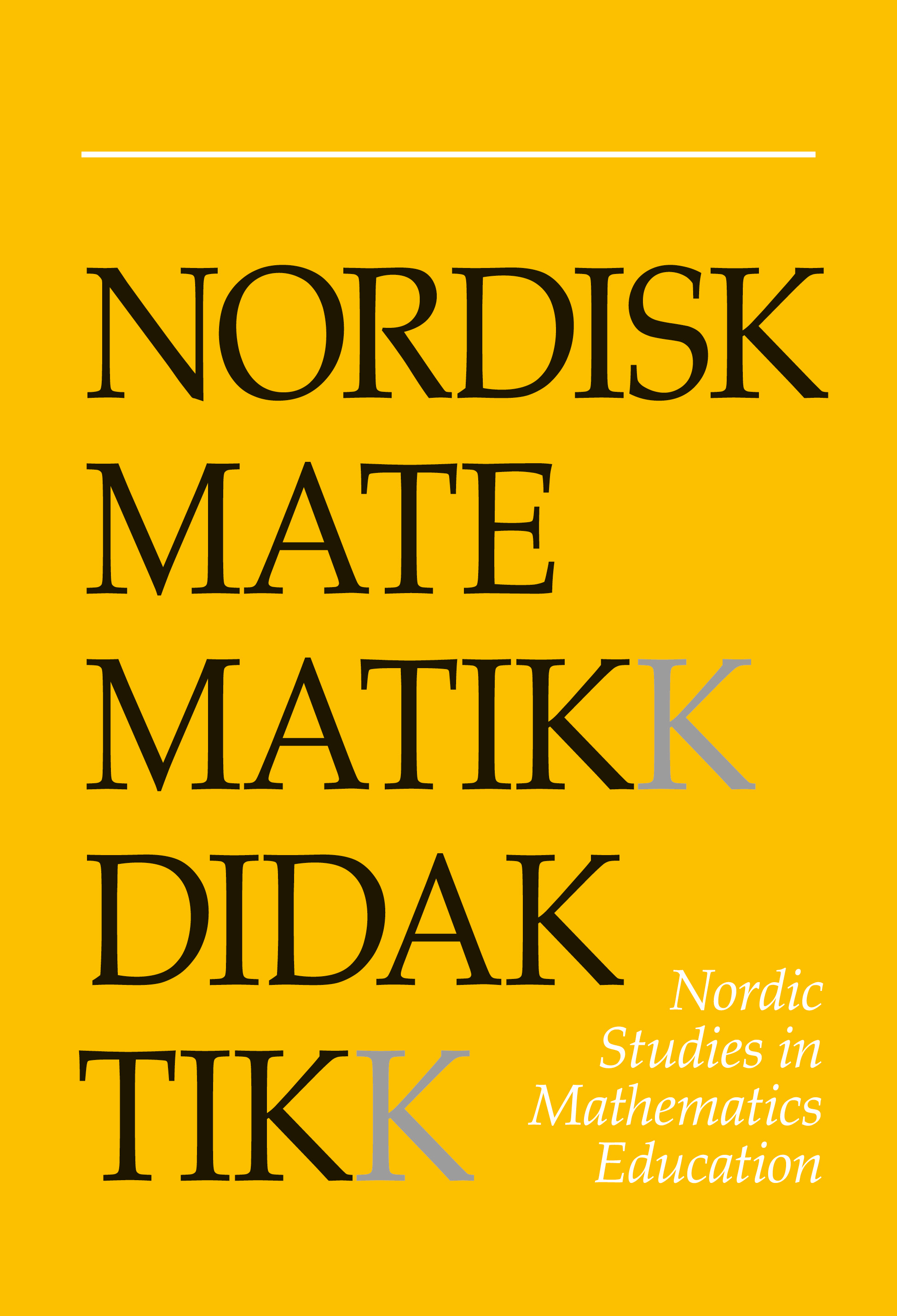Learning to teach mathematics in preschool through theory-driven interventions
DOI:
https://doi.org/10.7146/nomad.v26i3-4.149168Abstract
In this paper we aim to highlight how teachers’ ways of experiencing mathematics teaching for preschoolers is reflected in their teaching acts. The specific research question is how one teacher’s way of experiencing the task of teaching numbers to preschool children change when participating in a professional development project informed by Variation theory principles. We analyze the teaching of one teacher participating in a professional development project during one preschool year with particular interest in how principles for teaching numbers in preschool are implemented in the teacher’s teaching. Observations from authentic teaching situations and an interview with the teacher are data for analysis. From a variation theoretical analysis, we draw conclusions of how the teacher’s ways of experiencing mathematics teaching to preschoolers is reflected in her teaching acts and what challenges there are to implement theory-driven mathematics education in preschool.
References
Akker, J. van den (1999). Principles and methods of development research. In J. van den Akker (Ed.), Tools in education and training (pp. 1-14). Kluwer Academic. https://doi.org/10.1007/978-94-011-4255-7_1
Akker, J. van den, Gravemeijer, K., McKenney, S. & Nieveen, N. (Eds.) (2006). Educational design research. Routledge.
Ball, D. L., Thames, M. H. & Phelps, G. (2008). Content knowledge for teaching: What makes it special? Journal of Teacher Education, 59 (5), 389-407. https://doi.org/10.1177/0022487108324554
Björklund, C., Alkhede, M., Kullberg, A., Reis, M., Marton, F. et al., (2018). Teaching finger patterns for arithmetic development to preschoolers. In J. Häggström, Y. Liljekvist, J. Bergman Ärlebäck, M. Fahlgren & O. Olande (Eds.), Perspectives on professional development of mathematics teachers. Proceedings of MADIF 11 (pp. 111-120). NCM & SMDF.
Björklund, C., Ekdahl, A-L. & Runesson Kempe, U. (2021). Implementing a structural approach in preschool number activities. Principles of an intervention program reflected in learning. Mathematical Thinking and Learning, 23 (1), 72-94. https://doi.org/10.1080/10986065.2020.1756027
Cheng, P. W. D. (2008). Meta-learning ability - a crucial component for the professional development of teachers in a changing context. Teacher Development, 12 (1), 85-95. https://doi.org/10.1080/13664530701827764
Ekdahl, A.-L. (2020). Different Learning possibilities from the same activity - Swedish preschool teachers' enactments implementation of a number relation activity. Scandinavian Journal of Educational Research (online first). https://doi.org/10.1080/00313831.2020.1739131
Guskey, T. R. (2002) Professional development and teacher change. Teachers and Teaching, 8 (3), 381-391. https://doi.org/10.1080/135406002100000512
Katz, L. G. (1972). Developmental stages of preschool teachers. Elementary School Journal, 73 (1), 50-54. https://doi.org/10.1086/460731
Korthagen, F. (2010). How teacher education can make a difference. Journal of Education for Teaching, 36 (4), 407-423. https://doi.org/10.1080/02607476.2010.513854
Marton, F. (2015). Necessary conditions of learning. Routledge. https://doi.org/10.4324/9781315816876
Marton, F. & Booth, S. (1997). Learning and awareness. Lawrence Erlbaum. National Agency for Education (2018). Curriculum for preschool. Lpfö18.
Schön, D. A. (1983). The reflective practitioner. How professionals think in action. New York: Basic Books Inc.
SFS 2010:800. Education act. Ministry of Education.
Shulman, L. S. (1986). Those who understand: Knowledge growth in teaching. Educational Researcher, 15 (2), 4-14. https://doi.org/10.2307/1175860
Timperley, H. (2008). Teacher professional learning and development. International Academy of Education.
Downloads
Published
How to Cite
Issue
Section
License

This work is licensed under a Creative Commons Attribution-NonCommercial-ShareAlike 4.0 International License.



